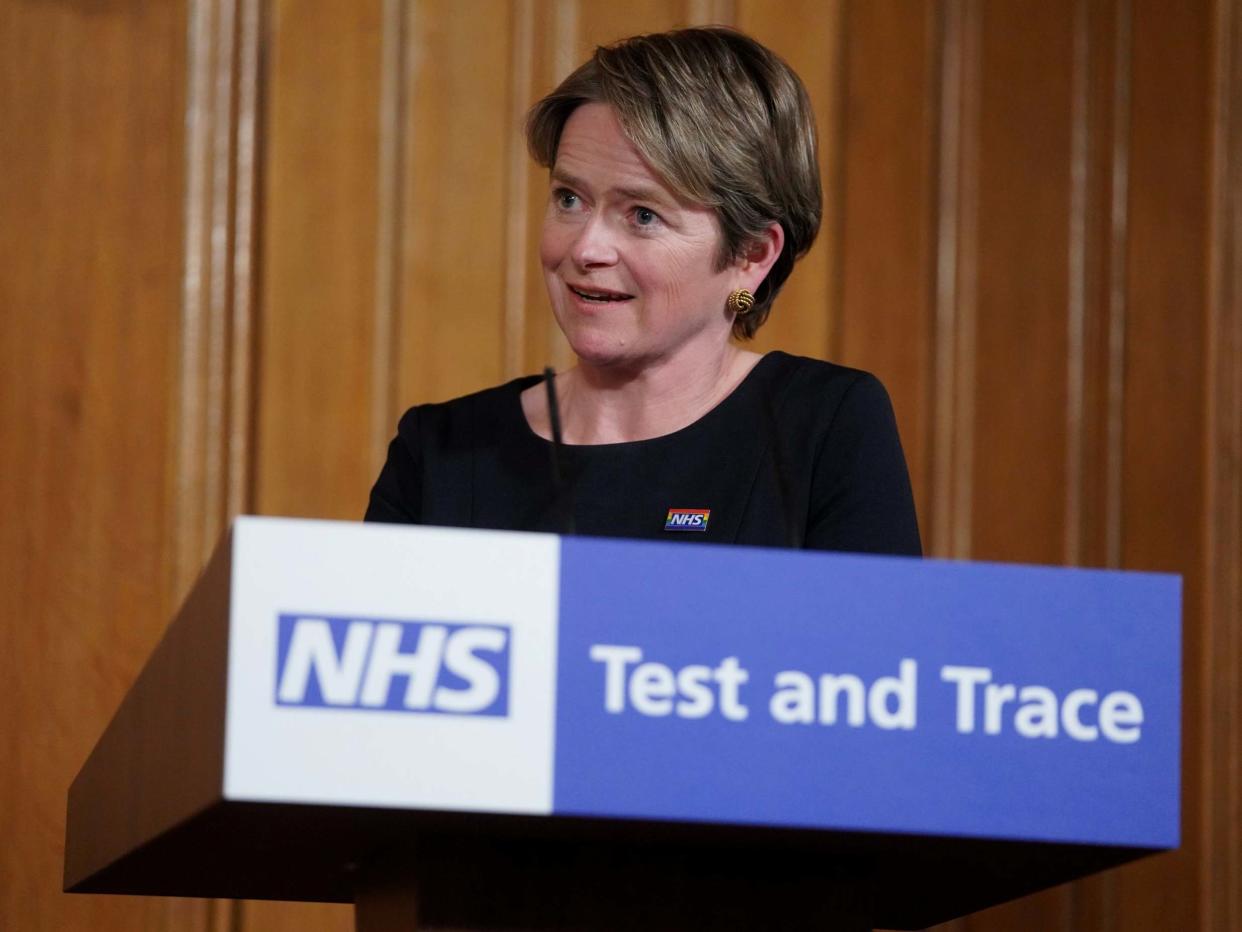Coronavirus: Test and trace chief warned lack of transparency on performance could ‘destroy confidence’

The head of NHS test and trace has refused to give MPs any data on the first six days of the new service, leading health committee chair Jeremy Hunt to warn that a lack of transparency could “destroy confidence” in its work.
Baroness Dido Harding, who is leading the new effort, said she was working to validate performance data, which relies on people with Covid-19 symptoms isolating and being called by a team of tracers to identify others they have been in contact with.
MPs had wanted to know how many patients had been contacted within 24 hours as well as how many were willing to share their contacts, and the compliance with self-isolation advice.
But Baroness Harding said she would not share the information until the UK Statistics Authority was happy with the data and to ensure it could be trusted. The UKSA criticised the government earlier this week over its public use of test results data.
Chair of the committee and former health secretary Jeremy Hunt said he was “disappointed” with her refusal and said it was hard for the committee to scrutinise services if it did not have the data, which she had been pre-warned it would ask for.
He said: “We were told this was going to be a world-beating system when it was launched and I don’t think it’s unreasonable for us to ask quite simple questions like what proportion of new Covid cases have been contacted within 24 hours.”
Leaked information on Tuesday suggested only two-fifths of coronavirus patients and one-third of their contacts were identified and contacted by the tracing service.
Pressing his point, Mr Hunt asked Baroness Harding: “Do you understand the counter argument which is not sharing with us very basic data … might actually destroy confidence in it because it will make people think the reason data is not being shared is because it’s not terribly good.
“What no one wants to tell us is the overall proportion of tests that come back within 24 hours. And you must know that.”
Baroness Harding said she was waiting for the data to be “validated” and a weekly dashboard would be made available next week at the earliest – but only if the UK Statistical Authority was happy, she said.
She told the committee: “It’s a six-day old service, and therefore there is work to do to make sure that we validate the data sources.”
While she said there was “excess testing capacity” in the country now she was concerned not enough people were ordering tests when they were ill. Baroness Harding referred to polling suggesting only 44 per cent of people knew all adults were eligible for testing.
She said: “The actual conversion that we’re most concerned about is from people having symptoms to them ordering a test. Because if they don’t enter the test and trace system, we can’t then deliver our part of the bargain in making sure we identify their contacts and ask them to self-isolate within 48 hours.”
She said only about 1,600 people tested positive on Tuesday but it is thought around 8,000 people are contracting the virus every day.
“The capacity of the system is not the issue. What we need to do together as a society is encourage everyone if they feel ill and they have a cough, a fever or lost the sense of taste or smell that they sell-isolate immediately and order a test,” Baroness Harding said.
Read more
Seven charts that show the true scale of the UK coronavirus outbreak
‘They can blame it for everything’: What coronavirus means for Brexit
The Americans who think that coronavirus is a hoax
Do you need a face mask and where can you buy one?
UK lockdown: Can I see my family and friends under new rules?

